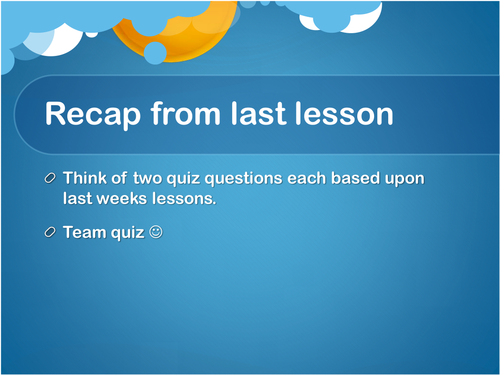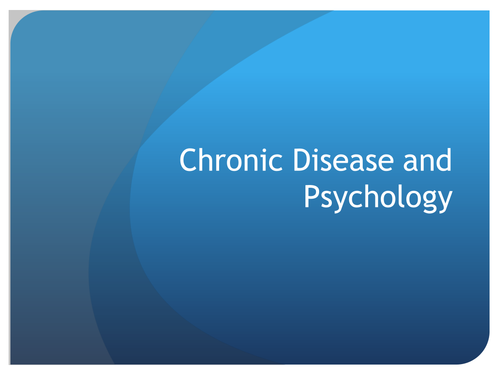
134Uploads
50k+Views
12k+Downloads
Psychology

Atypical Psychology
A very detailed, heavy session which covers various aspects of Atypcial Psychology, including activities for students.
I would recommend re-formating to make slides more user friendly.
Originally designed for Access to Higher Education but can be tweaked to fit A-Level specifications.

Developmental Psychology
LO's: Describe and evaluate two relevant theories in Attachment.
Describe and evaluate supporting studies in attachment
Use relevant terms and concepts relating to developmental psychology
Apply the nature versus nurture debate to your chosen theories
Designed for Level 3 courses.
Student activities embedded throughout the presentation.

Psychological Health's impact on Physical Health
This lesson considers to important questions...How does an individuals psychological state impact on their health and well-being? and How might a professional deal with this to support the individual?
Originally designed for Access to Health Professions students, this lesson contains activities and scenarios of a medical/healthcare nature.

What is classified as Normal and Abnormal behaviour?
This worksheet is best bought as part of a bundle with the accompanying PowerPoint. Students will indicate a list of behaviours and whether they deem them as normal or abnormal. They will then justify their responses. Can be used a starter or a plenary.

Introduction to Learning Disabilities and Advocacy
This PowerPoint was designed for a full day lesson, aimed at Level 3 students.
It covers types of advocacy, active participation, definitions and causes, medical and social models of disabilities.
Lots of discovery learning, group work and activities which students can relate to real life contexts.

Disability
Lesson Focus: To be able to use psychological theory to explain why misconceptions of disability exist.
Some student activities, contentious questions and relevant theory throughout.
Originally aimed at Access to HE Learners but would also be appropriate for other courses.
You may wish to use additional student focused activities to compliment this.

Sociological Theories of Deviance
Whole lesson which was delivered over a full day of teaching. Students will research key theories and apply this to real life context. This is suitable for A-Level and Access to HE Learners. PowerPoint also contains some details for teacher prompts.
Students will explore relativism vs absolutism, social constructs

Explanations of Mental Illness Starter
Students will need some prior knowledge of the biological, psychological and social explanations of mental illness to partake in this Starter activity: Presentation concerns images which relate to either the biological, social or psychological explanations of mental illness. Students will need to work independently to note down which slides they think correspond to which approach. There is some overlap which will generate discussion! I would recommend that you have an impromptu discussion at the end of the starter to enable students to justify their answers, this should be an ideal AfL opportunity.

Labelling Theory and Crime
This lesson introduces students to the idea of labelling theory and what can impact on being labelled as criminal e.g. the circumstance, historical period etc. Modern examples are used e.g. the one legged model to introduce students to this area in a way they can relate to.
Students will embark on a range of activities surrounding Becker, Labelling theory, Producing a Web Page based on the theory and will be briefly introduced to the overlap between sociological/criminological theory and philosophy by looking at John Stuart Mills and Jeremy Bentham.
This should last for around 2 hours depending on the group delivered to.

Could Stress Ever Be your Friend?
Session designed for a one hour tutorial during Ofsted week to a group of age 16+ learners but would be suitable for a wider age range.
LO's
Describe what stress is
Discuss outside influences on coping with stress
State causes of stress
Describe a different perspective of stress
Discuss the benefits of stress
Student activities throughout which are encouraged to help students consider the benefits of stress and how to use it to their advantage.
Particularly useful before exams.

Models of Mental Illness
This session will need between 1-2 hours depending on the group. Students should be able to meet the following objectives:
-Identify the five main models of abnormality
-Discuss the implications for treatment of each model
-Evaluate the models of abnormality
They will be able to look in-depth at disorders and treatments which align with the main models. Several activities embedded throughout.

Chronic Disease and Psychology
A Full lesson with student activities surrounding psychology and how its theories can be used to explain/support Chronic Disease.
The lesson covers Pain Management/Gate Control Theory, Coping Strategies, Pain Perception, Wound Healing, Behaviour Change Models and Biofeedback.
It was originally written for Access to HE Health and Social Sciences (Level 3) students but can be tailored to fit other courses.

Mental Health in Adolescence
Student Focused Investigation style lesson where students will be researching the prevalence and causation of mental health problems in Adolescents.

Social Work-values and Purpose
This is a powerpoint with activities to enable students to explore the values and purpose of social work.
Students will produce an information sheet for a scenario, they will then examine the British Association of Social Work Ethics Committee.

Health Promotion
This is about 4 hours worth of teacher-led tutorial and student activities on health promotion.
Students will cover the following:
Healthy/unhealthy/risk taking behaviours
Why health promotion is used
Organisations on a local and national level which seek to promote health
Health Targets
Models of Behaviour Change
Health Promotion Activities and Techniques
Students will build on their research and evaluation skills.
Bundle

Psychology/Mental Health
A range of full lessons on psychology and mental health. Applicable to A-Level, Health and Social Courses, Psychology Courses and Access to HE Courses.

Multi-Disciplinary Team Work
Students will explore the following in relation to health and social care via a range of activities:
To Explain what is meant by the term ‘multi-disciplinary team’ (MDT)
To Evaluate multi-disciplinary team working within the Health and Social Care context
To Analyse the influence of a health care professional and their professional bodies

Forensic Psychology
Whole lesson covering what forensic psychology is and treatment of criminals. Student activities contained.

Measuring Crime
Originally created for A-Level learners, this lesson is also appropriate for Foundation degree and Access to HE students studying sociology, criminology and psychology.
The lesson will enable learners to investigate how measuring crime has changed throughout the centuries as well as beginning to build up an idea of the reliability of crime data.
Students will the reasons why crimes are not always report and take an in depth look at White Collar Crime, with reference to two well known case studies.




















